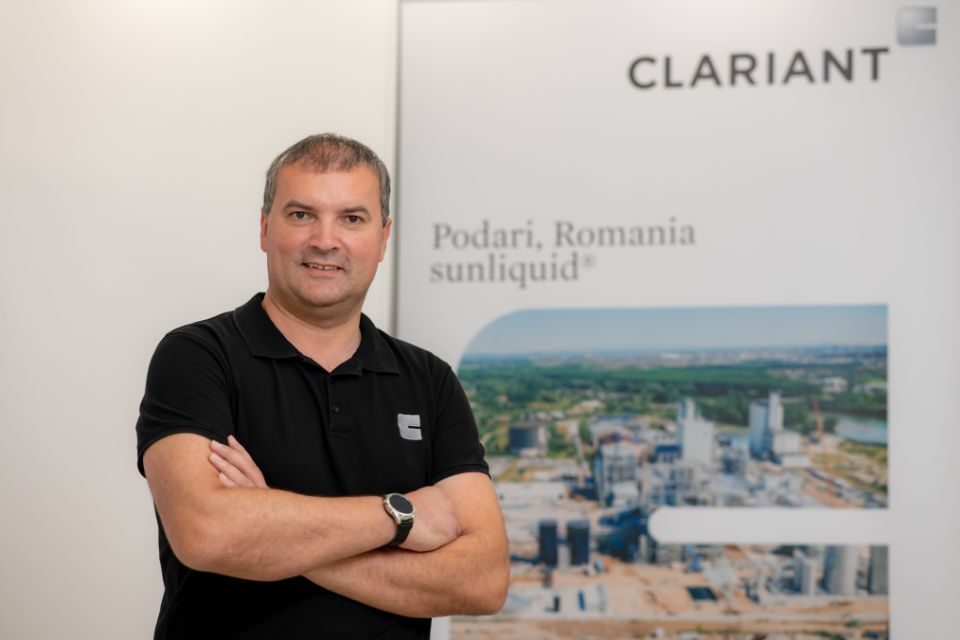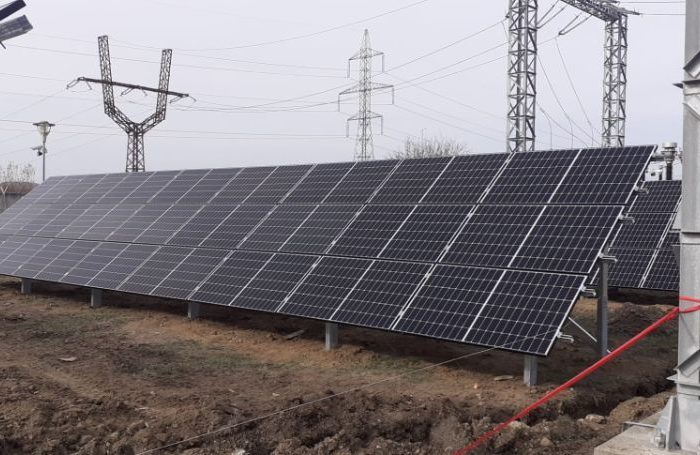INTERVIEW Dragos Gavriluta, Clariant: “Romania is well positioned to produce advanced biofuels”

“Important customers from both Romania and other EU countries have shown a high interest in the sunliquid® technology and cellulosic ethanol, and we are confident that this will lead to advantageous cooperation in the coming years,” Dragos Gavriluta, Project Director Sunliquid Romania, Country Head for Romania – Clariant Products RO SRL told The Diplomat-Bucharest.
“The Podari project is a flagship one for both Clariant and the industry at large, demonstrating how the sunliquid® technology works and why biofuels are beneficial from an economic and environmental perspective. Therefore, our strategy is to expand licensing to other countries worldwide, as any region where raw material abounds may be the next spot on the cellulosic ethanol manufacturing map.”
What are Clariant’s medium and long-term goals after the completion of the Podari plant?
The plant we have built in Podari is the first full-scale commercial unit of its kind, using the innovative sunliquid® technology to produce biofuel. Clariant’s approach is revolutionary in the sense that agricultural residues, such as cereal straw, are collected from local farmers and processed into cellulosic ethanol.
As this project is now successfully completed and soon to become operational, we are committed to present the strong competitive advantages brought by the technology and the positive impact it has on the community, the economy and the environment, in hope more investors will get on board and support the development of this relatively new field.
At the same time, we look at granting other sunliquid® licenses globally. Five such projects are currently being rolled out – three of them in Europe, in Slovakia, Poland and Bulgaria and two in China.
Not in the least, Clariant will remain a strong advocate for green and sustainable business models and aims to contribute to the reduction of greenhouse gas emissions, in line with the bold objectives embraced by the European Union.
What challenges did you face in completing the plant?
Developing a flagship project of this magnitude can be challenging at any time, but we had a few assets – Clariant international best practices, the quality of our team of professionals, the high standards that our partners resonated with and, not in the least, the confidence and the motivation which kept pushing us forward.
Sure enough, the pandemic determined us to rethink our strategy and come up with rigorous sanitary precaution measures, but we managed to stick to the initial scheduling, while keeping everyone safe. It was an extensive effort, but it definitely paid off and now we look forward to starting production.
How many workers will be needed in the new plant and what are your plans for it?
Our team at Clariant Romania currently counts almost 80 employees, out of which some are from Podari. We have been both happy and proud to see the trust they have invested us with and their enthusiasm in developing a successful career, at home.
At the same time, we believe that gathering competent people is not enough and we as an employer need to play our part as well, enabling them to develop professionally and personally.
This summer, the team of core specialists completed training at the bioethanol plant in Straubing, Germany, and are now passing on their knowledge to our colleagues and training them for their new jobs at Clariant. In addition, another part of the training was carried out in collaboration with the University of Craiova, an important and famous educational centre in the Oltenia region. Within this partnership, Clariant team members were involved in different projects and benefited from advanced courses in English, Chemistry and Information Technology (IT).
How long do you estimate that the production of cellulosic ethanol using sunliquid® technology will be economically competitive?
Sustainability concerns us all and authorities, companies and individuals alike have been focusing more and more on finding the best solutions, to make sure that future generations will inherit the environment that they truly deserve. Therefore, there is a strong need to invest in green technologies and products, which contribute to reducing greenhouse gas emissions, among others.
Transportation is a central piece in today’s society and, as much as we rely on it, we have to pay attention to how it impacts air quality, for example. Although several options have been considered, biofuels – like the cellulosic ethanol to be produced in Podari – has an impressive potential, since it can be blended with conventional fuels and used in the current infrastructure, from day 1.
Important customers from both Romania and other EU countries have shown a high interest in the sunliquid® technology and cellulosic ethanol, and we are confident that this will lead to advantageous cooperation in the coming years.
Under what conditions would you build a new plant of this type in Romania?
The Podari project is a flagship one for both Clariant and the industry at large, demonstrating how the sunliquid® technology works and why biofuels are beneficial from an economic and environmental perspective. Therefore, our strategy is to expand licensing to other countries worldwide, as any region where raw material abounds may be the next spot on the cellulosic ethanol manufacturing map.
It is important to emphasize that Romania is well positioned to produce advanced biofuels, given the abundance of agricultural residues in our country. We hope that the results of our project will attract other investors who are convinced of the prospects of this industry.














